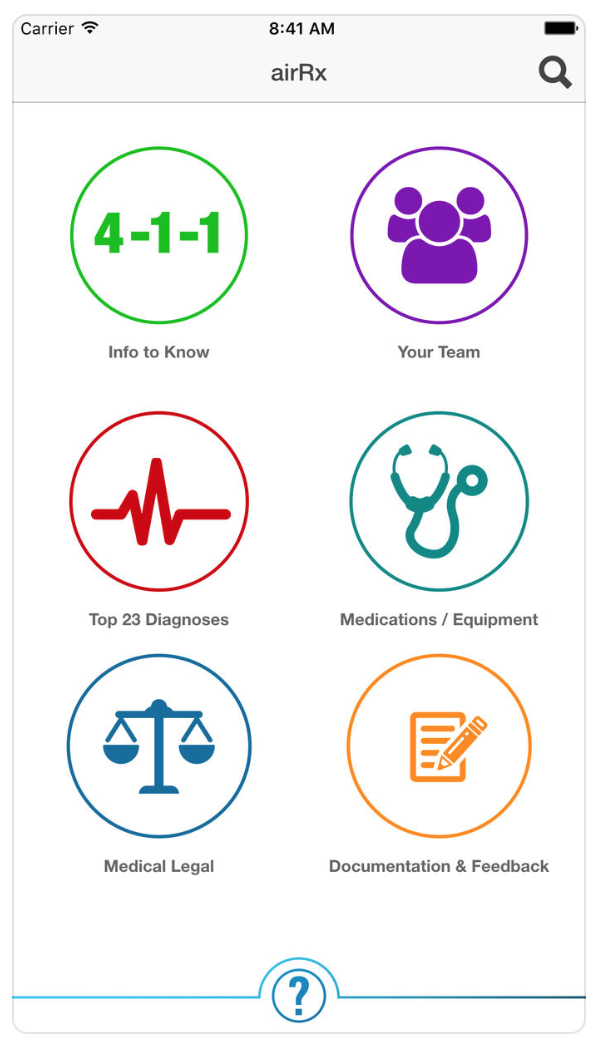 A new simulation study of 58 physicians shows that AirRx, an iOS and Android app, can help physicians to perform better during inflight emergencies in some ways, though it might slow them down in others.
A new simulation study of 58 physicians shows that AirRx, an iOS and Android app, can help physicians to perform better during inflight emergencies in some ways, though it might slow them down in others.
AirRx, which launched in 2016, provides a doctor with a to-do checklist, common medications available on flights, best practices for airline medicine, and information on legal rights and protections, all available in airplane mode. Doctors can download the app before a flight so they're prepared in case they're called upon to respond to a medical emergency.
“Few resources are available to familiarize physicians with what they may encounter as in-flight volunteers, which often includes medical events and conditions outside of their own medical specialties,” Dr. Raymond E. Bertino, airRx lead developer and clinical professor of radiology and surgery at the University of Illinois College of Medicine Peoria (UICOMP). “AirRx provides a real-time checklist and quick reference handbook to improve the way that emergent medical situations in the air are addressed.”
To validate the app, Jump Simulation, a collaboration between UICOMP and OSF HealthCare, designed a simulated airline cabin environment with actors playing the roles of passengers and flight attendants. They had a total of 58 non-ER doctors go through the simulation, 29 with access to the app and 29 without access to it. In the simulation, patients suffered from either shortness of breath or syncope (temporary loss of consciousness caused by falling blood pressure).
Outside observers assessed physician performance based on whether they hit each item on a pre-developed checklist and how quickly they performed certain time-critical actions.
The app group performed more of the checklist items for both conditions than the non-app group. The app group was faster to contact ground support, but the control group was faster to check vitals in the shortness of breath scenario and to give fluids for syncope. The simulation itself performed well, increasing the confidence of participants in their ability to perform in a future flight emergency situation.
"Health care professionals are typically not used to responding to in-flight medical emergencies,” Dr. John Vozenilek, vice president and chief medical officer for simulation at Jump Simulation, said in a statement. “The study suggests that practice with simulated in-flight emergencies improves resident physicians’ confidence and performance. Access to a specialized mobile app also seems to help.”
















